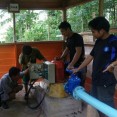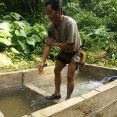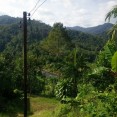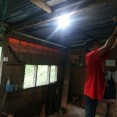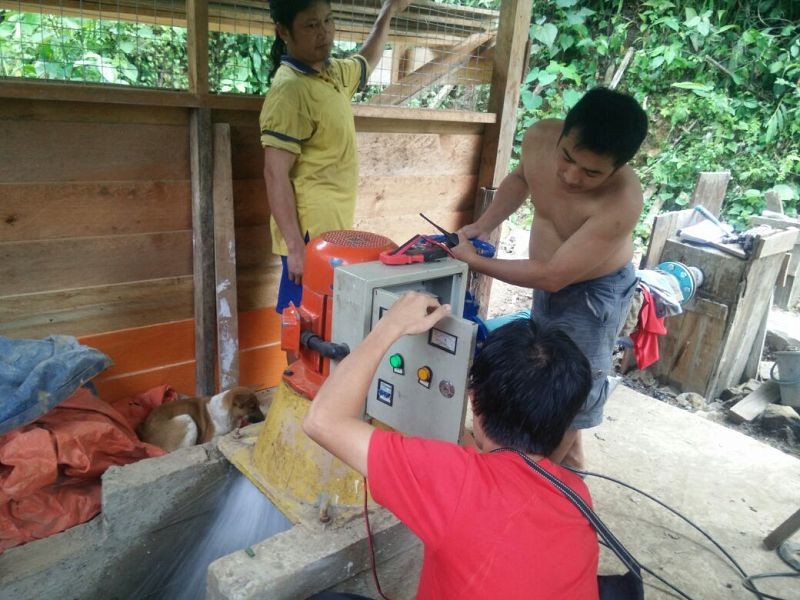In Trelew, Chubut, the students from the local Technical School have installed a new wind-solar hybrid system, capable of providing opportunity for energy self-sufficiency in the rural community.
Project Progress: Watershed Development and Conservation in the Ulu Papar Rainforest, Malaysia
The aim of this project is to provide three villages situated in a remote rainforest region of Malaysia with access to clean water, renewable electricity and income generation opportunities.
Recently, the decision was taken to develop a smaller system in Lokogungan using concrete turbine technology from Sri Lanka, instead of constructing three micro-hydro plants. This was due to logistical difficulties in sourcing the turbine technology. The new pico-hydro system will power public buildings: the village school, church and a community hall. It will also include charging stations, where village residents can charge lamps and cell phones for use in their homes. Additionally, an on-site workshop will be held in Lokogungan to train community members and practitioners in the concrete turbine process.
The micro-hydro plant in Pongobonon is almost complete and the turbine is currently undergoing testing. Local villagers are enjoying the benefits of lighting for the first time.
Construction in Kalangaan is nearly complete, with all major civil structures now finalised. However, the transportation of the pipes and the cement has been very slow, and some pipes and several loads of cement still need to be transported to the site.
More information on this SEPS project is available on our project page: Integrating Watershed Development and Conservation in the Ancestral Forests of Ulu Papar
